Cecile Germain
Anomaly Detection With Conditional Variational Autoencoders
Oct 12, 2020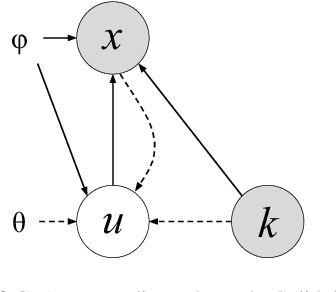

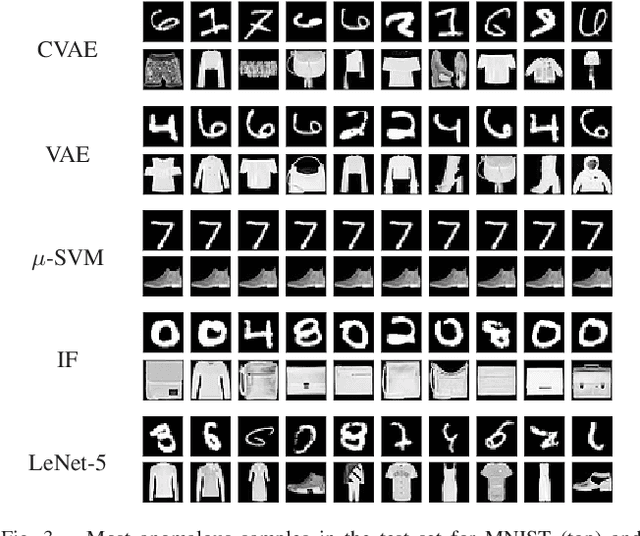

Abstract:Exploiting the rapid advances in probabilistic inference, in particular variational Bayes and variational autoencoders (VAEs), for anomaly detection (AD) tasks remains an open research question. Previous works argued that training VAE models only with inliers is insufficient and the framework should be significantly modified in order to discriminate the anomalous instances. In this work, we exploit the deep conditional variational autoencoder (CVAE) and we define an original loss function together with a metric that targets hierarchically structured data AD. Our motivating application is a real world problem: monitoring the trigger system which is a basic component of many particle physics experiments at the CERN Large Hadron Collider (LHC). In the experiments we show the superior performance of this method for classical machine learning (ML) benchmarks and for our application.
Detector monitoring with artificial neural networks at the CMS experiment at the CERN Large Hadron Collider
Jul 27, 2018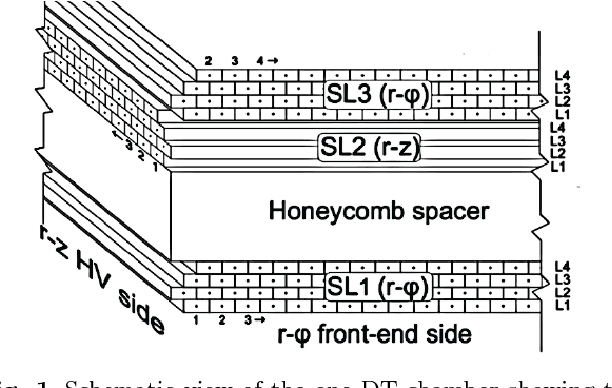
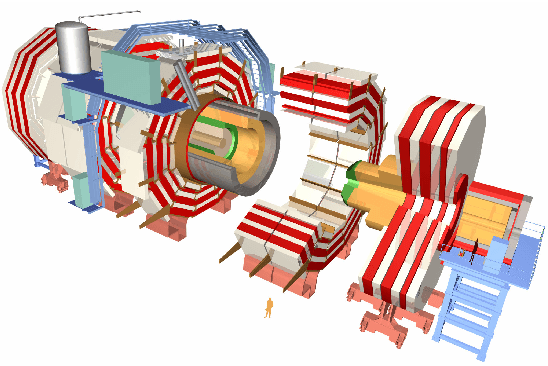
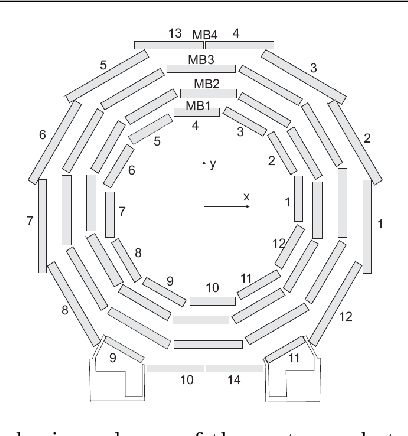
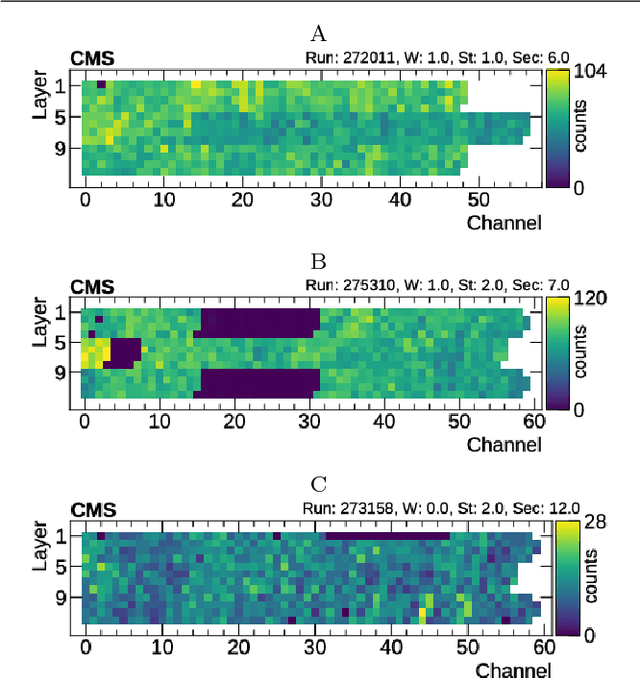
Abstract:Reliable data quality monitoring is a key asset in delivering collision data suitable for physics analysis in any modern large-scale High Energy Physics experiment. This paper focuses on the use of artificial neural networks for supervised and semi-supervised problems related to the identification of anomalies in the data collected by the CMS muon detectors. We use deep neural networks to analyze LHC collision data, represented as images organized geographically. We train a classifier capable of detecting the known anomalous behaviors with unprecedented efficiency and explore the usage of convolutional autoencoders to extend anomaly detection capabilities to unforeseen failure modes. A generalization of this strategy could pave the way to the automation of the data quality assessment process for present and future high-energy physics experiments.
 Add to Chrome
Add to Chrome Add to Firefox
Add to Firefox Add to Edge
Add to Edge